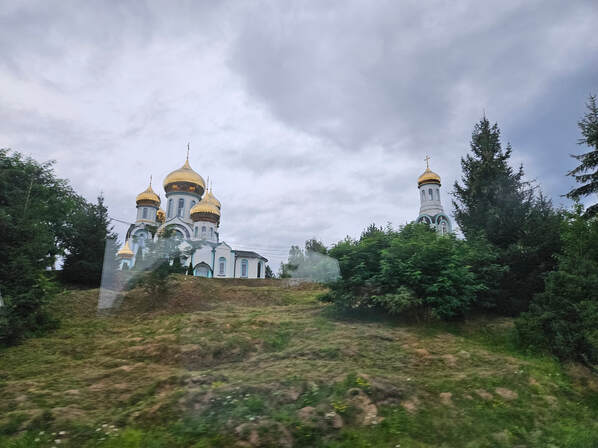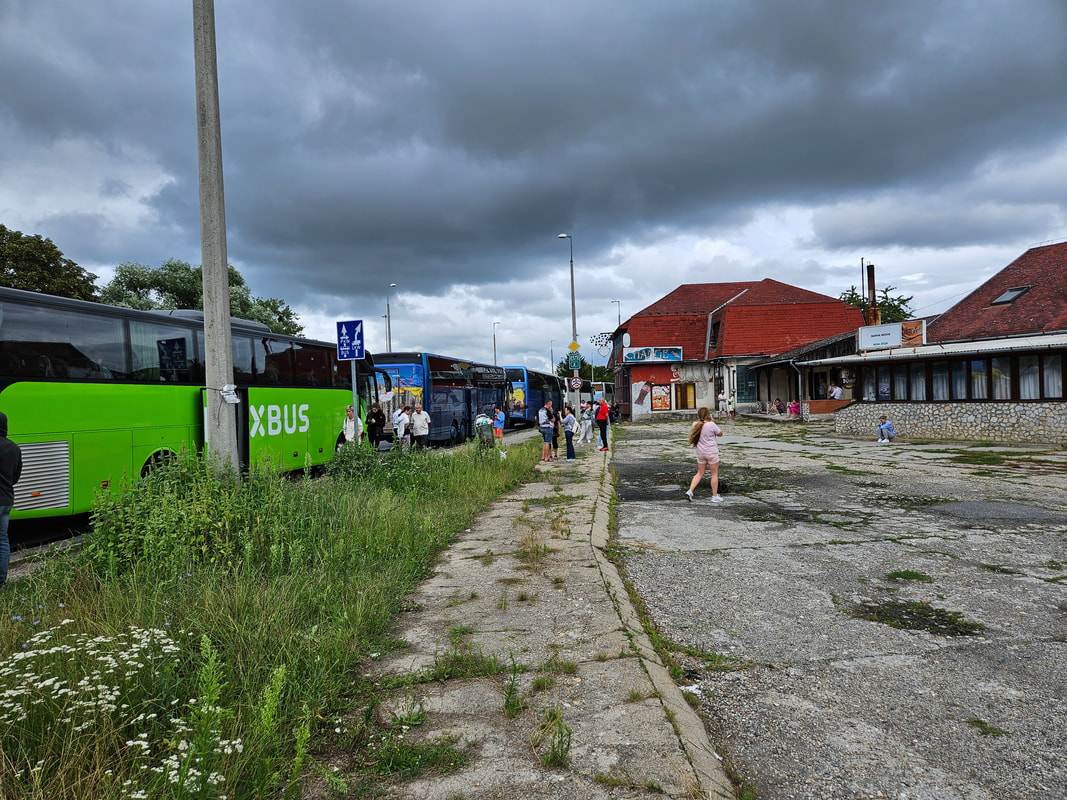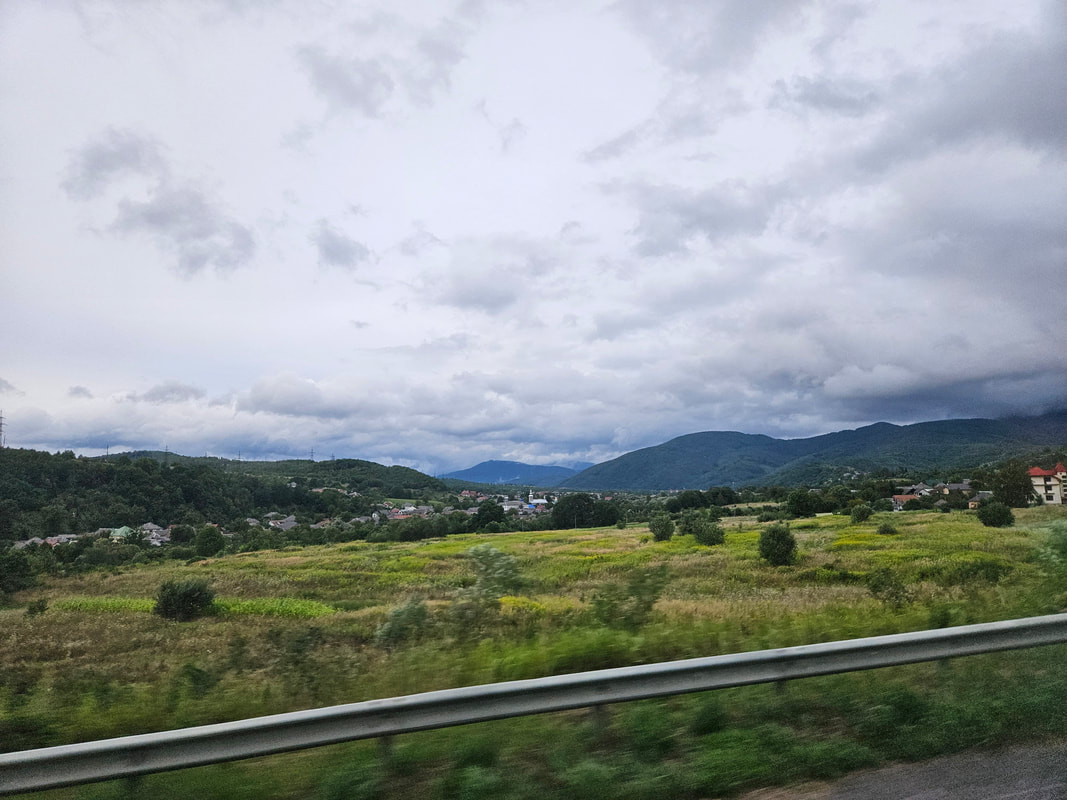Lviv - Day 1
From the flat farmland of Eastern Hungary we climbed up through the Carpathian mountains and arrived in Lviv right at the midnight curfew.
The Ukrainian woman sitting next to me on the bus spoke English so I asked her about her experiences and perceptions.
First, I asked how supportive Ukrainian people are of the war and the president. She replied that people complain about various things but that the overwhelming majority support both the president and the way he's handling the war, and believe this is a fight for survival, as well as freedom. She summarized by saying, "War is horrible, but some things are worse than war."
I had been told the day before by someone I'd met in Budapest that the "Revolution of Dignity" in 2014 that provoked the first Russian invasion a few months later had been backed and financed by the CIA, so I asked her about that. She responded that the Revolution of Dignity had been a response to newly-elected prime minister Yanukovich breaking promises to sign an agreement with the EU and open Ukraine more to the world. Instead he canceled the agreement and tried to bind Ukraine more tightly to Russia. According to this woman he also immediately began enriching himself, his friends and his family from public coffers, leading to $70 billion being stolen from the Ukrainian government and sent abroad. She said it was the final straw when mostly young people went to the streets to protest and security forces loyal to Yanukovich killed dozens of them. At that point hundreds of thousands of people from all sides of the political spectrum flooded the streets and Yanukovich fled to Russia.
I told her I'd heard a lot about corruption in Ukraine and she said :"We inherited a corruption problem from being ruled by a corrupt Russian system. That problem is not resolved, but we've been working on it and we'll continue working."
I asked her about the relationship of the Ukrainian people to the Russian people and she said: "I'm a native Russian speaker. I have lots of family members in Russia and we speak all the time and they tell me they love me. But there are many things they cannot say or the police will knock on their door. And other people I know have family in Russia who no longer talk to them and blame Ukraine for starting this war. We have to teach our children that we need to be strong and to love and defend our country, but that we should try not to hate the Russians. But so many of us have suffered from this war that many people do."
Before we arrived in Lviv she helped me install the air raid app on my phone that notifies people here that an attack has been launched on a specific region and that they need to take shelter. A few minutes before we reached our destination a siren went off and the whole bus went silent. It took a few moments for me to realize that the sound was coming from my phone.
We realized that the app was set for notifications in the eastern part of the country and she re-set it for the Lviv region and it went silent.
Tomorrow I'll tell you about some of the people I've met in organizations that are working to help children, refugees and soldiers and to strengthen and heal their society.
In the meantime, here's a quote from this* Eliot Cohen article published recently in The Atlantic that sums up what I've heard from most of the people here that I've spoken to:
(Western/American officials) "forget what it means to have a fifth of your country occupied, or to know that a far bigger country is attempting, every night, to smash your power plants, blockade your ports, and destroy your crops. They are not holding in the forefront of their minds obliterated towns and mass graves. They do not know what it is to welcome back exchanged prisoners of war who have been castrated. Or to mourn old men and women murdered, or younger men and women tortured and raped. Or to worry frantically about thousands of children kidnapped. They forget that while a Western official’s sleep may be interrupted by a phone call or an alarm clock, a Ukrainian official’s sleep is more likely (and more often) interrupted by a siren or the crash of a missile slamming into an apartment block.
*https://www.theatlantic.com/international/archive/2023/08/ukraine-western-diplomacy/674920/?utm_source=copy-link&utm_medium=social&utm_campaign=share




 RSS Feed
RSS Feed
